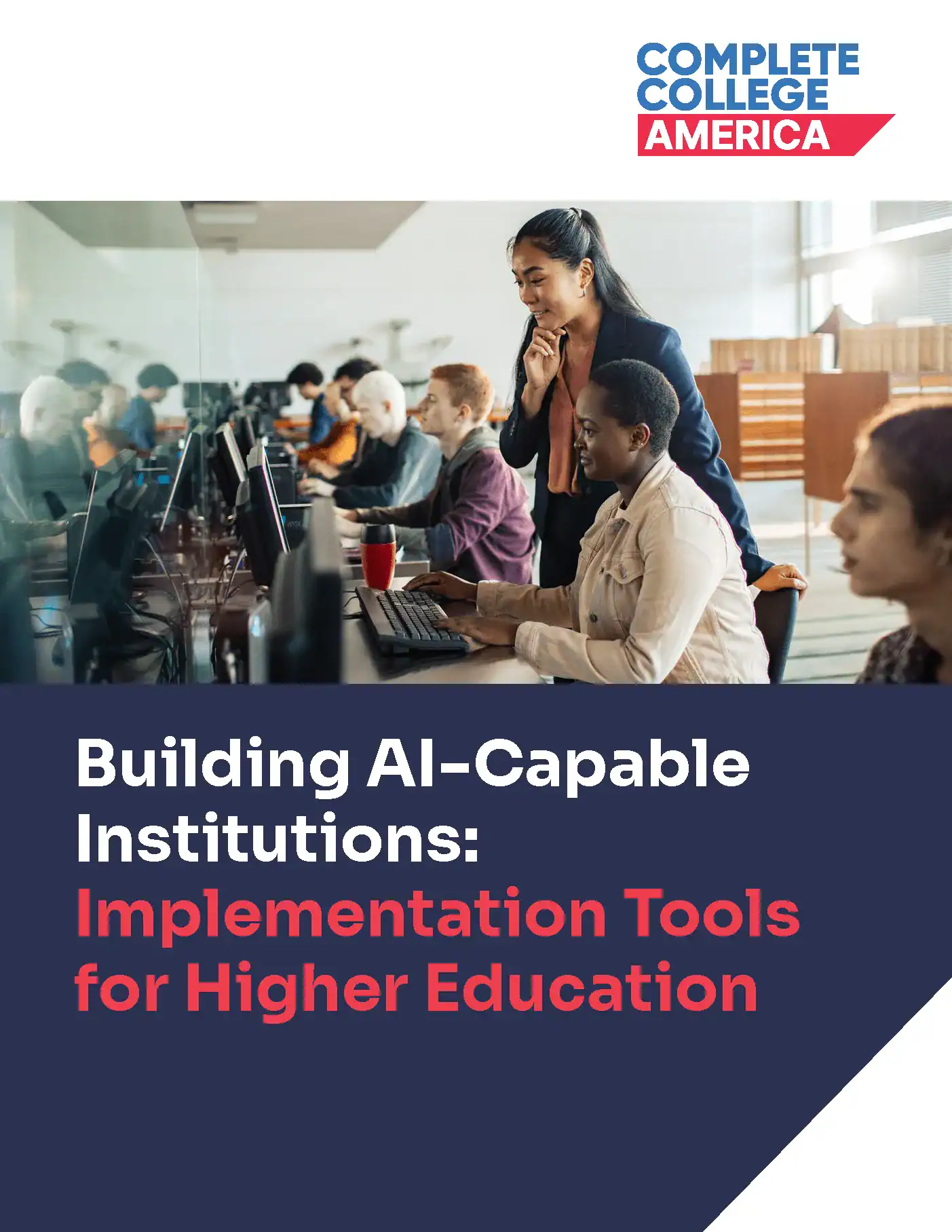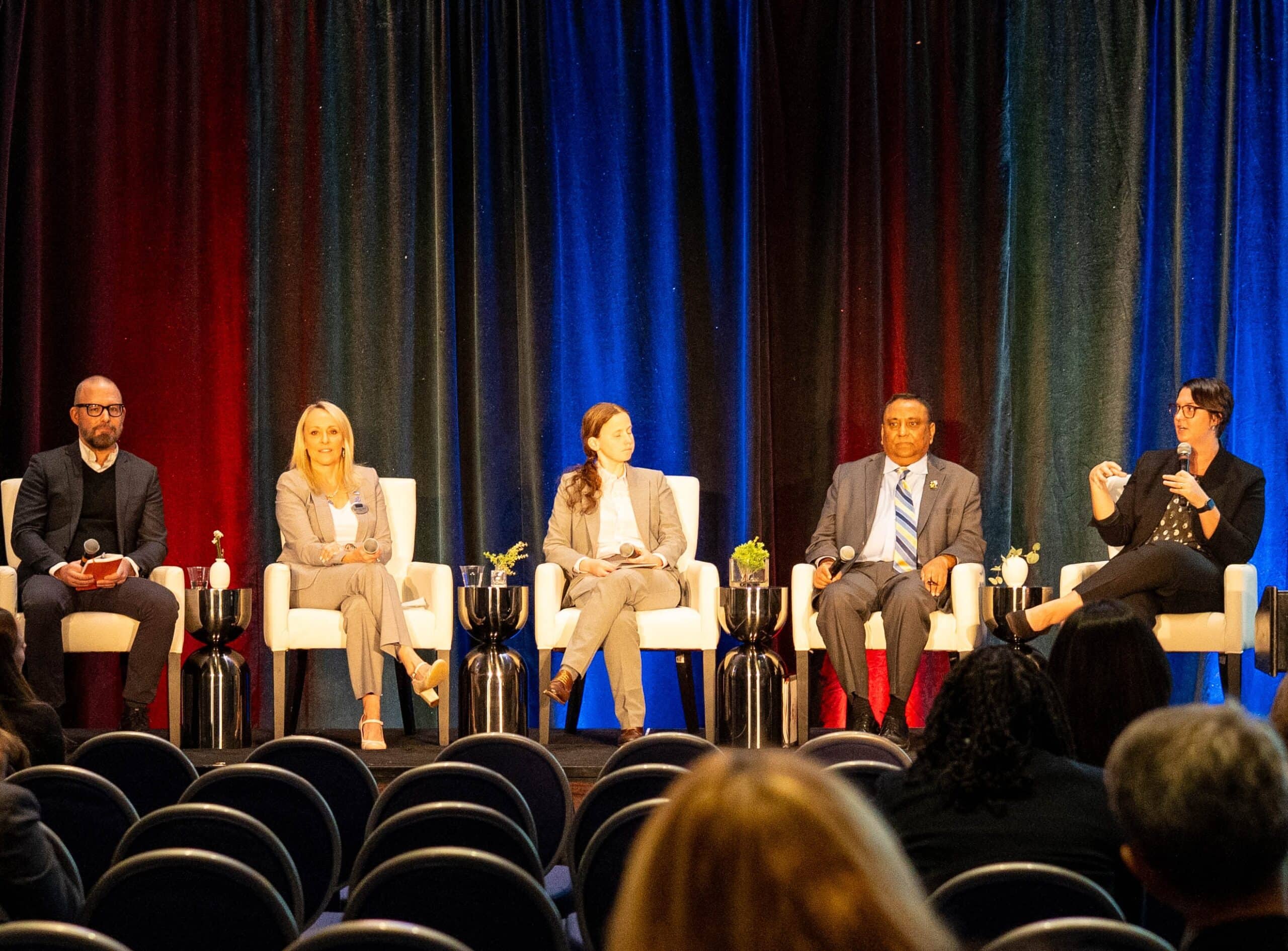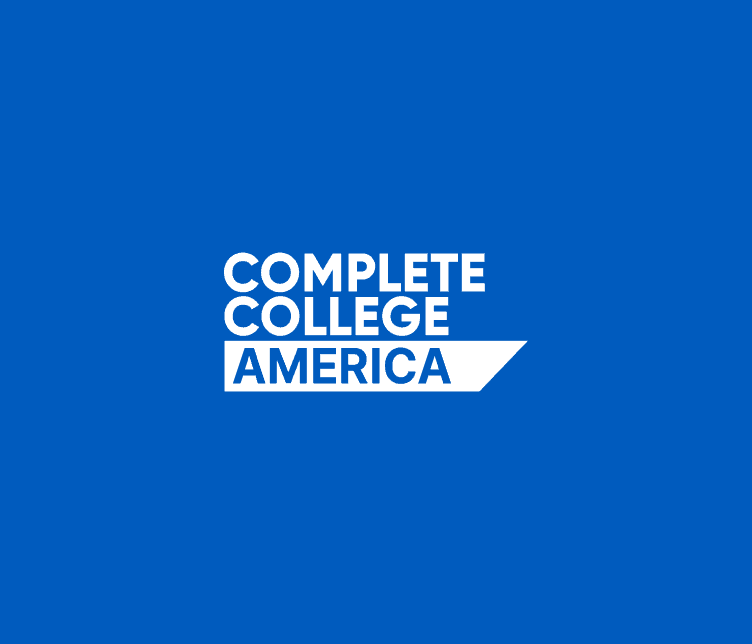New publication from Complete College America shares surprising, real-world case studies on campus AI adoption with tools and templates to help equip colleges and universities to build AI capabilities
INDIANAPOLIS (July 22, 2025) — Complete College America (CCA), a national nonprofit on a mission to raise postsecondary attainment in the United States, released today a new report to help higher education leaders and educators integrate artificial intelligence (AI) as a core component of college curriculum and instruction and to accelerate student success. The new publication offers an inside look at how faculty and staff from the University of Louisiana System, University of Massachusetts Lowell, and Arizona State University are harnessing the power of generative AI technologies to not only strengthen AI literacy on campus, but to transform teaching, learning and student outcomes.
“At a time when so much of the conversation around AI has focused on its potential to disrupt classrooms or compromise academic integrity, we have a powerful opportunity to shift the narrative from hype and frenzy to real-world results,” said Yolanda Watson Spiva, Ph.D., president of Complete College America. “This isn’t just about the challenges AI presents—it’s about the promise it holds to help students stay on track, earn their degrees, and thrive in a world that’s being reshaped by this technology every day. This new resource offers a clear, practical roadmap for using AI with intention—to educate students not only about the role it plays in their lives, but to harness its potential in ways that advance student success.”
As AI rapidly transforms the education landscape, colleges and universities across the country are seeking actionable strategies to effectively implement AI to increase college completion rates and improve student success outcomes. The EDUCAUSE 2025 AI Landscape Study shows that more than half (57%) of higher education leaders and professionals surveyed reported that their school now considers AI a strategic priority, but only 39% of institutions currently have AI-related acceptable use policies.
The new publication from Complete College America, titled “Building AI-Capable Institutions: Implementation Tools for Higher Education,” gives colleges and universities the tools to integrate AI into academic programming and operations. The case studies in the playbook offer real insights on integrating AI into curriculum and instruction: the wins, the challenges, and the lessons learned. Each example is paired with ready-to-use implementation tools—including proposal templates, job descriptions, and evaluation rubrics—that other institutions can adapt and apply in their own context.
- The University of Louisiana System: Launched a free, self-paced AI literacy microcredential for over 82,000 students and employees, with a strong focus on ethics, digital literacy, and data privacy. The initiative was developed by a cross-campus team led by the University of New Orleans and funded by the Louisiana Board of Regents.
- UMass Lowell: Offered $1,000 mini-grants to 35 faculty across five colleges—plus $500 for faculty-student collaboration—to pilot AI innovations in the classroom. The program welcomed ideas from all disciplines, included built-in mentorship through workshops and peer learning, and was supported by a Faculty Fellow with a $3,000 stipend.
- Arizona State University: Hosted a campuswide innovation challenge, inviting faculty, staff, and students to propose AI solutions for teaching, research, and administration. Selected projects received enterprise ChatGPT Edu licenses and IT support, while proposal data-informed strategic investments focused on student success and operational impact.
“Students don’t have time to wait for higher education to figure out what AI means for them—they need colleges that are ready to act,” said Meacie Fairfax, strategy director at Complete College America and who also leads the organization’s AI work. “This playbook helps cut through the noise and delivers what faculty and administrators are asking for: real examples and honest lessons to help make AI literacy building part of the student experience, not just a tech trend. Done right, it can be a powerful lever for student success.”
The publication is an extension of CCA’s broader efforts to help colleges harness the power of AI and technology to boost college completion, particularly for historically underrepresented student populations. Central to this effort is the CCA Council on AI, a coalition of senior leaders from more than 10 institutions, including HBCUs, tribal colleges and universities, Hispanic-Serving Institutions, and AANAPISIs, collectively serving more than 370,000 students, and representatives from UNCF, the Association of Public & Land-Grant Universities, The Association for Talent Development (ATD), T3 Advisory, and the Community College Survey of Student Engagement (CCSE). Representing some of the most innovative institutions in the country, the Council has a charge of advancing a national conversation around ethical, student-centered AI adoption to promote student access, learning and completion.
To explore the full playbook and access more free AI implementation resources, visit www.completecollege.org/AI-resources
###
About Complete College America: Complete College America (CCA) is a bold national advocate for dramatically increasing college completion rates and closing institutional performance gaps by working with states, systems, institutions, and partners to scale highly effective structural reforms and promote policies that improve student success.




